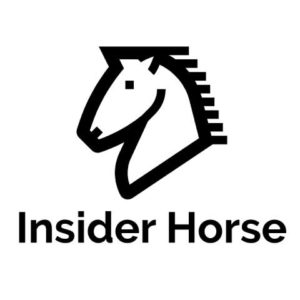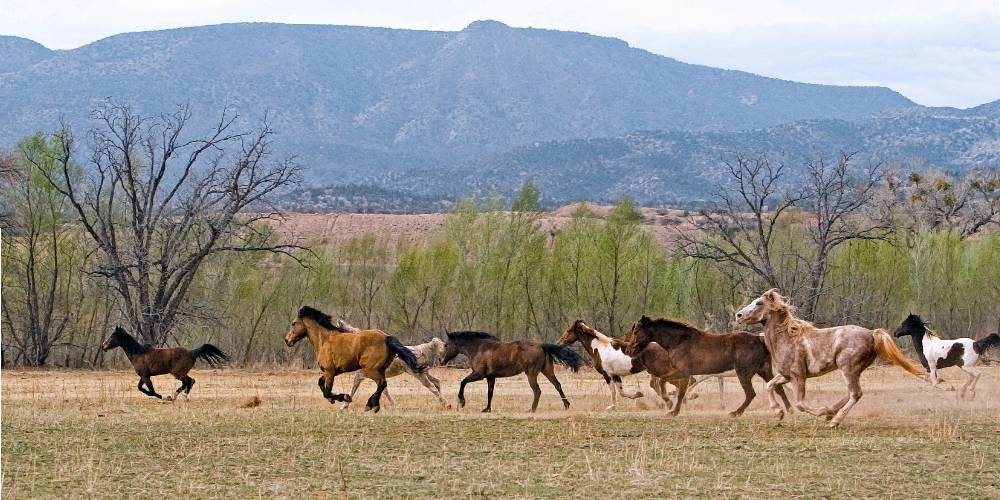You may wonder, why do horses sleep standing up? Why do foals chomp their teeth when a big horse is coming after them? You may even be asking why do horses stay in herds? All of these are defense mechanisms that the horses use day to day to keep themselves alive. These are just instincts that they are born with that help them to thrive in the wild.
What is a Defense Mechanism?
A defense mechanism is basically an instinct that helps one to survive whether it is an anatomical trait or behavior. An example of this would be how horses will sleep standing up. If danger strikes a horse that is sleeping standing up, they don’t need to get up off the ground before they start running from the danger, they can start running right away. This mechanism is especially important for the horses in the wild, as without it, they would be much more vulnerable to predators. The main defense mechanism used by horses however is their fight or flight response to most situations.
Examples of Defense Mechanisms in Horses
Sleeping Standing Up
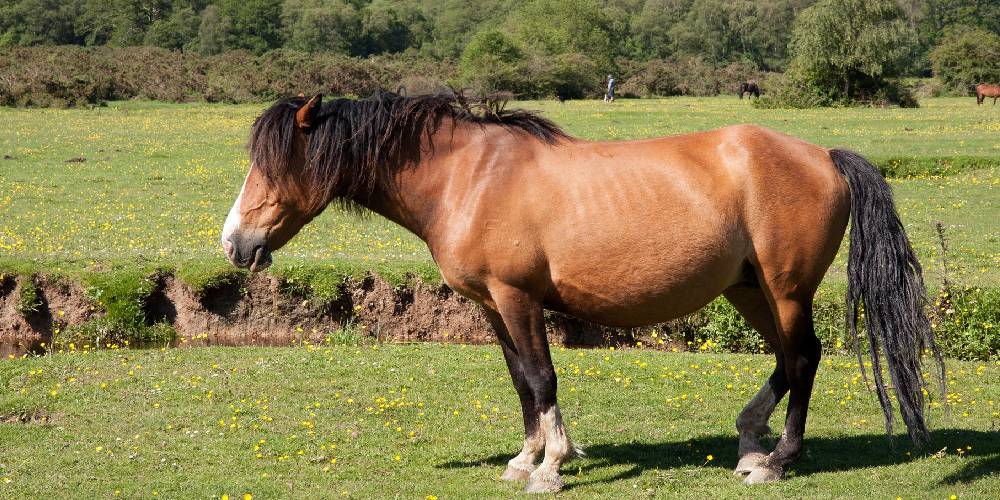
Horses sleep standing up as a way to defend themselves when they are sleeping. A horse is very vulnerable on the ground if they are lying down to sleep, but if a horse is standing when asleep, all they need to do is wake up and they can run.
This defense mechanism is what helps to keep them alive in the wild. If a horse needs their sleep but they don’t feel secure enough to lie down to sleep, they will stand which helps them to be much more prepared to escape danger.
They are able to stay standing due to a “stay apparatus” which locks their major joints allowing them to stay standing even if they fall asleep.
Natural Swimming Ability
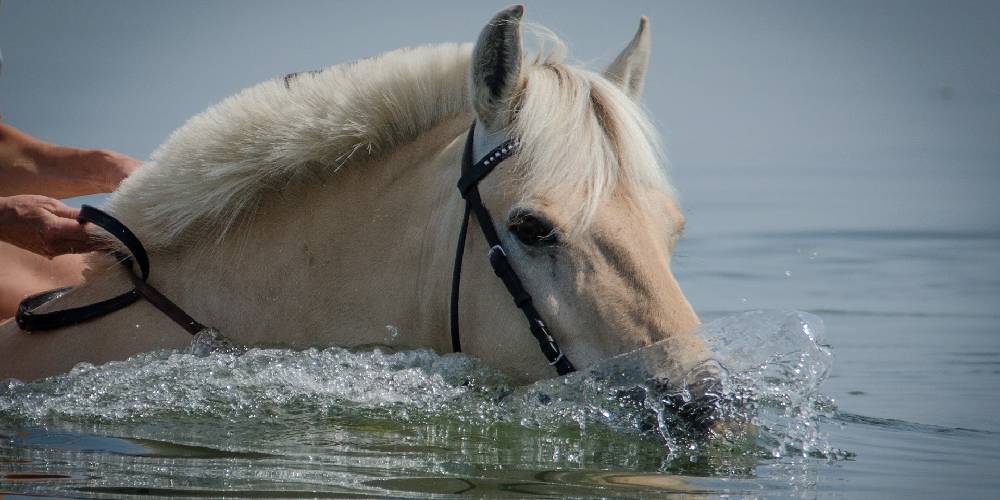
Horses have a natural ability to swim and with this they can escape from predators if they need to. This ability also allows them to swim across channels and rivers if they are migrating to a new area.
Because they can swim, it offers an escape route to some horses who have no choice but to turn to the water to flee. Some people who own small islands keep their horses, mainly stallions, on them during the year and when it is breeding season they will swim them off the island and back to the main land. This is seen often in countries like Ireland.
Champing
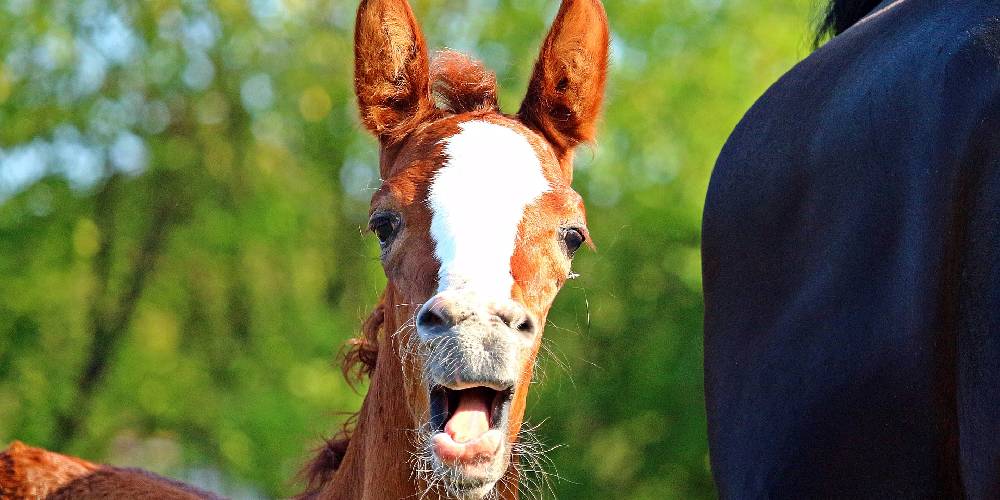
You may notice when observing a group of horses that a foal may pull its lips back and seem to bite down many times with its mouth open when being pestered by a bigger or older horse. It’s as if they seem to say “Don’t hurt me I’m just a baby!” Foals will do this if they feel that a larger or older horse is threatening them.
I actually got to see this in person the other day. My friend and I were clipping a Welsh pony named Hamish and we decided to turn the pony out with her colt Archie. The two were running around together just fine until Hamish the pony started biting at Archie’s neck and hindquarters. This is when Archie started champing and was telling Hamish to not hurt him because he is only a baby. It was so cute to see and rather funny too as Archie is actually taller than Hamish. Foals will champ until they are about one to two years old, but it is even seen with older horses as a submissive gesture.
Fight Or Flight
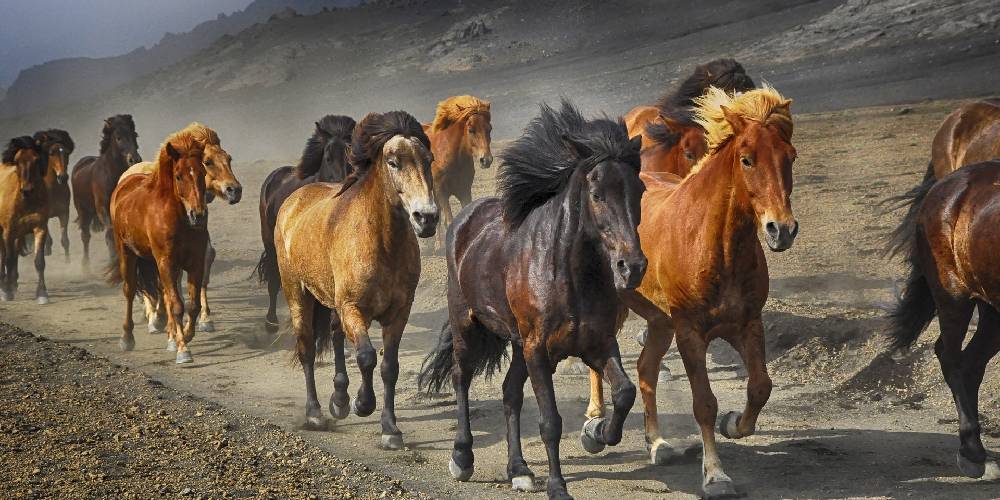
These are actually a horse’s primary defense mechanisms that it uses daily. Horses are fight or flight animals naturally and this is how they will respond when being threatened.
I would say that ninety percent of the time a horse will choose flight over fight when being threatened or spooked. When a horse chooses flight, they are basically just choosing to flee from their attacker rather than stand up to them
There are a few reasons why horses would choose to fight rather than choose flight. One reason would be if a mare feels that her foal is being threatened so she will stay and fight the attacker rather than flee from it leaving her baby in danger. Another reason a horse may choose to fight is if they are the lead stallion of a herd and they feel that the herd, the herd’s territory, or the herd’s members are being threatened. Whether it is a pack of predators, another band of horses trying to take some of the stallion’s horses, or if another herd of horses is trespassing on the herd’s territory, the lead stallion may think that fight is more important than flight so he or the herd don’t lose anything.
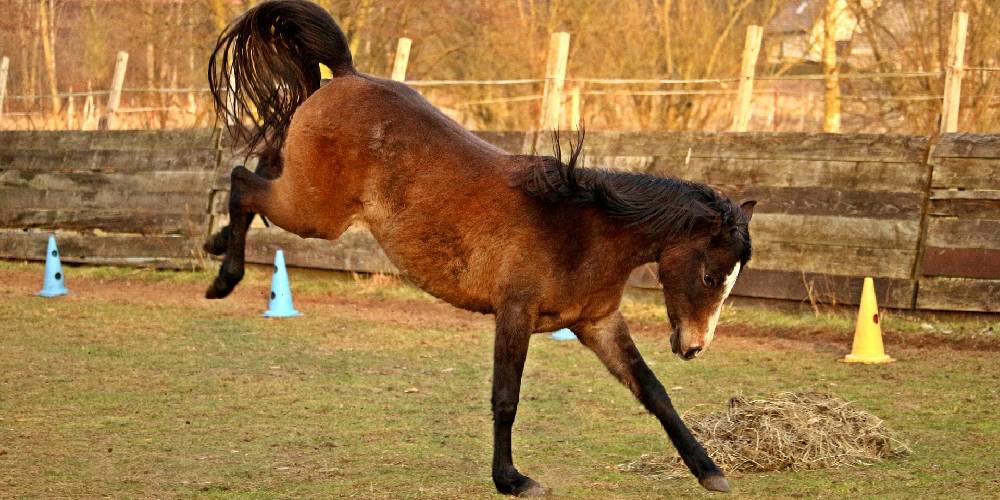
The things that horses do when choosing fight over flight is kicking, rearing, biting, bucking, and other aggressive and dangerous behaviors to their attacker or predator they are fighting.
When horses have the intent to kill they will actually go on their knees on top of the attacker or predator and bite them while crushing them with their weight.
Herd Bound
Staying in a herd is of the most important things that horses do on instinct. The saying that “there is safety in numbers” rings true.
Horses stay in a herd to watch each other’s backs. If the entire herd is lying down and sleeping, usually there is always one or two members of the herd who are actually standing up to keep guard over the rest of the herd. They are there to warn their herd members to get up and flee if danger is approaching.
Horses who stay in a herd find safety from predators when travelling close together. It is much harder to hunt an animal when it is running in a herd rather than running on its own. This is why even bachelor stallions will group together in their own band.
Giving Birth Alone At Night
Horses, when going into labor, will leave their herd usually at night and find a quiet and safe place to have their foals. This is because usually, predators would stalk an entire herd to find the weak link in the group. If a mare has her foal with the herd then the predators can more easily find the mama and her baby and members of the herd might make it hard for the mare and hurt the baby. If she goes off on her own it may be safer for her and her offspring.
Vision
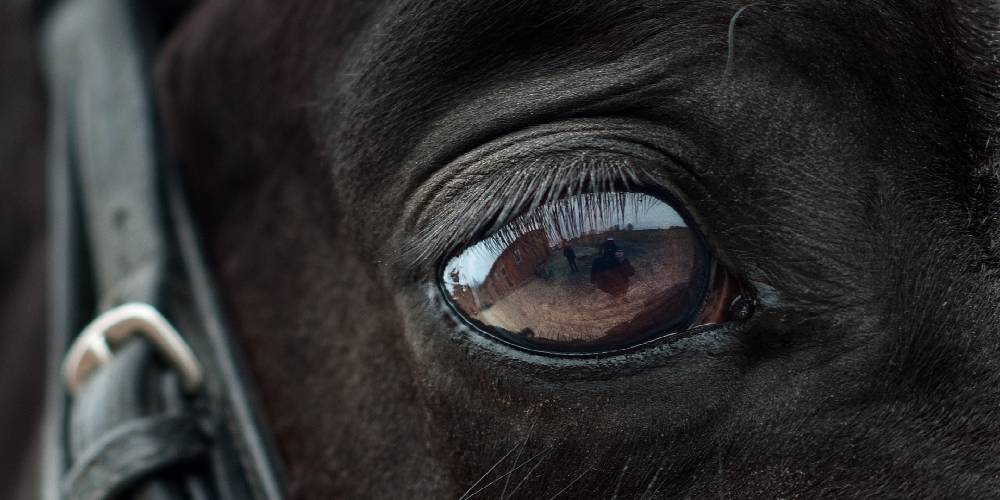
Horses have exceptional night vision which helps them to get around in the dark with little problems. Horse’s eyes are on the sides of their head enabling them to see nearly one hundred eighty degrees on either side of their head. This is so they can see something or someone coming from nearly every angle, so they can notice potential danger approaching from a good distance away.
Fun Fact On Horse Vision: The reason horses might be scared of puddles or getting into the trailer is because horses have really bad depth perception, so seeing a puddle looks like seeing a bottomless pit full of water, and seeing a trailer looks like an endless tunnel. Horses are more difficult to ride when it gets windy because suddenly things that were stationary like trees are moving and seem like a potential threat to the horse.
